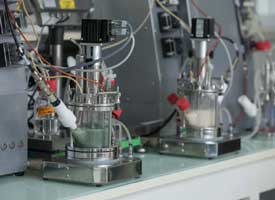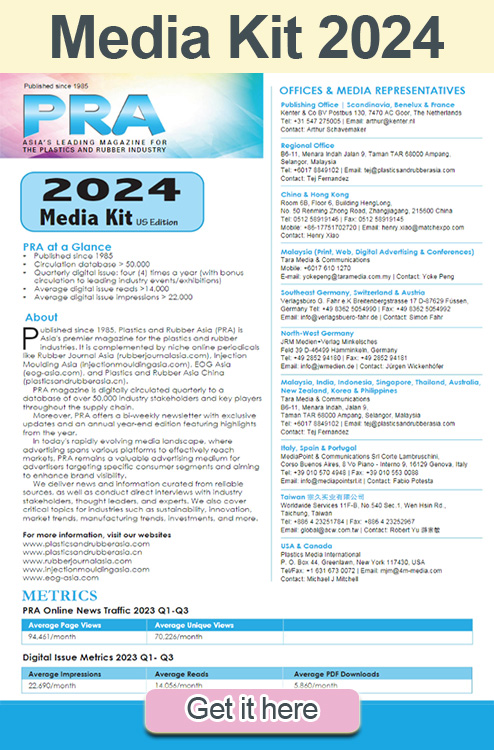Green tie-ups: Carbios/FCC mull PET biorecycling project in UK; Repsol/Honeywell tie-up for biofuels/chemical production

French biotech firm Carbios and FCC Environment UK, a recycling and waste management company, have signed a Letter of Intent (LOI) to jointly study the implementation of a UK-based plant using Carbios’ PET biorecycling licensed technology, which is able to produce recycled PET (r-PET) from PET plastic and textiles.
Recycling has plateaued in the UK in recent years, but UK government policy very much supports a continual move to a more circular economy which FCC Environment supports. Achieving a circular economy however requires innovation and investment to deliver real environmental change. Exploring biorecycling is one way of doing this, so FCC is keen to understand this technology better by seeking an evidence based view on the advantages of using enzymes for the treatment of PET such as lower energy consumption and better circularity of the polymers back into the PET production lines.
The innovative depolymerisation process developed by Carbios also facilitates the recycling of all kinds of PET waste, including problematic fractions such as polyester textiles, into high-quality recycled PET.
In order to tackle the plastic waste crisis, Carbios says it has developed a revolutionary enzymatic depolymerisation technology that enables efficient and solvent-free recycling of PET plastic and textile waste into virgin-like products. Carbios adds it has ambitious plans to become a leading technology provider in the recycling of PET by 2035. In addition to the world’s first industrial-scale enzymatic PET recycling plant which is currently under construction in Longlaville, France, this UK-based plant would process PET waste that is currently not recyclable using conventional recycling technologies, such as coloured, multilayered or textile waste.

In other news, integrated firm Honeywell and Spanish chemical firm Repsol have announced a collaboration to create new production pathways for biofuels and circular materials. It will include potential integration of waste conversion and plastics recycling technologies into Repsol’s existing refining assets.
The companies plan to scale and commercialise Honeywell's technologies, which use various wastes like fats, oils, greases, biomass and solids for chemical production and renewable fuels at Repsol’s refineries. Their goal is to produce different biofuels, including sustainable aviation fuel (SAF) and renewable diesel, while making use of existing refinery assets. This collaboration supports the alignment of Honeywell’s portfolio with the energy transition megatrend.
"As a global leader in sustainable fuel technologies, we seek collaborations to provide innovative solutions that help our customers and stakeholders to reduce carbon and greenhouse gas emissions through biofuel production." said Bryan Glover, Chief Growth Officer and CTO of Honeywell Energy and Sustainability Solutions. "Our collaboration with Repsol illustrates how Honeywell can apply new technologies to reduce carbon emissions while producing biofuels and advanced materials leveraging current refinery infrastructure."
The multi-energy company is also analysing the deployment of Honeywell's UpCycle Process Technology, which turns waste plastic into Honeywell Recycled Polymer Feedstock for new plastics. It can recycle diverse plastics like coloured, flexible, multilayered packaging and polystyrene. When used in conjunction with other chemical and mechanical recycling processes - along with improvements to collection and sorting - Honeywell's UpCycle Process Technology has the potential to help create the capability to recycle nearly 90% of waste plastics. This would represent a considerable increase in the amount of waste plastics that can be turned into polymer feedstock.1
"Renewable fuels and plastics recycling are crucial to Repsol’s commitment to achieve net zero emissions by 2050,” said Berta Cabello, Repsol’s Director of Renewable Fuels. “Our collaboration with Honeywell to advance and adopt cutting-edge technologies will help us reduce our carbon footprint and become a benchmark in renewable fuels and hydrogen production by 2030."
The two companies have a history of successful cooperation in various areas, such as licensing and developing petrochemical units, catalysts, technical support and troubleshooting, digitalization and technology.
In 2023, Repsol selected Honeywell’s Ecofining technology to make renewable fuels from sources like used cooking oil and waste animal fat at its plant in Puertollano, Spain. This technology was developed and commercialised jointly by Honeywell in collaboration with ENI S.p.A. Repsol is building this plant to produce about 240,000 tonnes/year of renewable diesel and other products.
Subscribe to Get the Latest Updates from IMA Please click here
©2024 Injection Moulding Asia. All rights reserved.
















